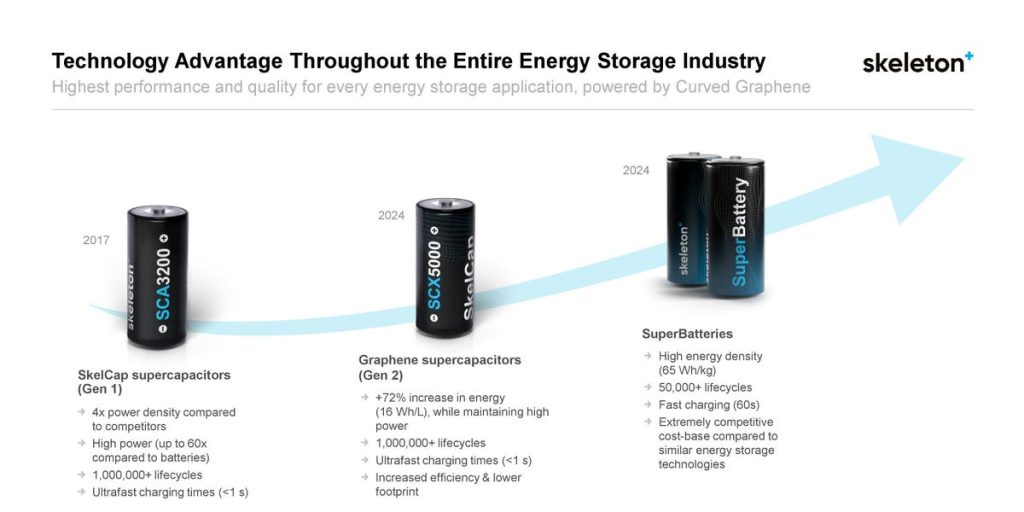Estonian energy tech company Skeleton Technologies has raised 108 million euros (around $114 million) from multinational Siemens and Japanese conglomerate Marubeni.
Skeleton, which was founded back in 2009 in Tallinn, manufactures fast-charging energy storage systems for transport, maritime, the grid, and medical equipment. Its secret sauce is its own material, Curved Graphene, which increases how much energy can be stored in its supercapacitors. Supercapacitors are like batteries but typically store less energy and release it faster.
The fresh funds, which bring Skeleton’s total raised to over 300 million euros (around $316 million), is a mixture of equity and debt. The company said the majority was equity, which would form its Series E round, but declined to comment further.
Despite a wider tech slump that has been even more pronounced at the later stage, investor appetite for the funding round was strong, according to Skeleton CEO Taavi Madiberk.
“What is important about Skeleton is our products are in the field. It is not the next big thing – we are already here,” he told Insider.
“When you look at many European companies, they are just starting up and not yet in the market. This was also a key differentiator in the funding round. With this funding environment, tangible proof of market traction matters, but are the products out and are they out to customers globally?”
The cash will be used to build a second factory – Skeleton already has one in Germany – which will be up and running by the end of 2024. The company will also scale up the production of Curved Graphene and its aptly named SuperBattery product, which combines the features of supercapacitors and batteries.
Strategic investors Siemens Financial Services and Marubeni Corporation, which counts Warren Buffet’s Berkshire Hathaway as a backer, co-led the round. Siemens is already a partner, supplier, and customer, Skeleton said. The pair are working together to automate and digitize Skeleton’s next factory. Marubeni, meanwhile, distributes Skeleton’s products in Asia and helps it secure customers in the region.
“If you look at successful scale-ups in clean tech, they always come through a partnership,” Madiberk said.
The European market remains Skeleton’s focus with North America as a secondary focus. It is taking advantage of the “flow of government subsidies,” Madiberk said. “Within the market, certain land grabs are taking place because we are in the midst of an industrial revolution,” he added.
Skeleton is also having “minister-level” meetings with countries; governments are interested in raw materials and strategic autonomy, Madiberk said.
Skeleton’s 328-strong workforce will be bolstered by around 100 by the end of 2024.
Check out the 17-slide pitch deck below:
Read the full article here




